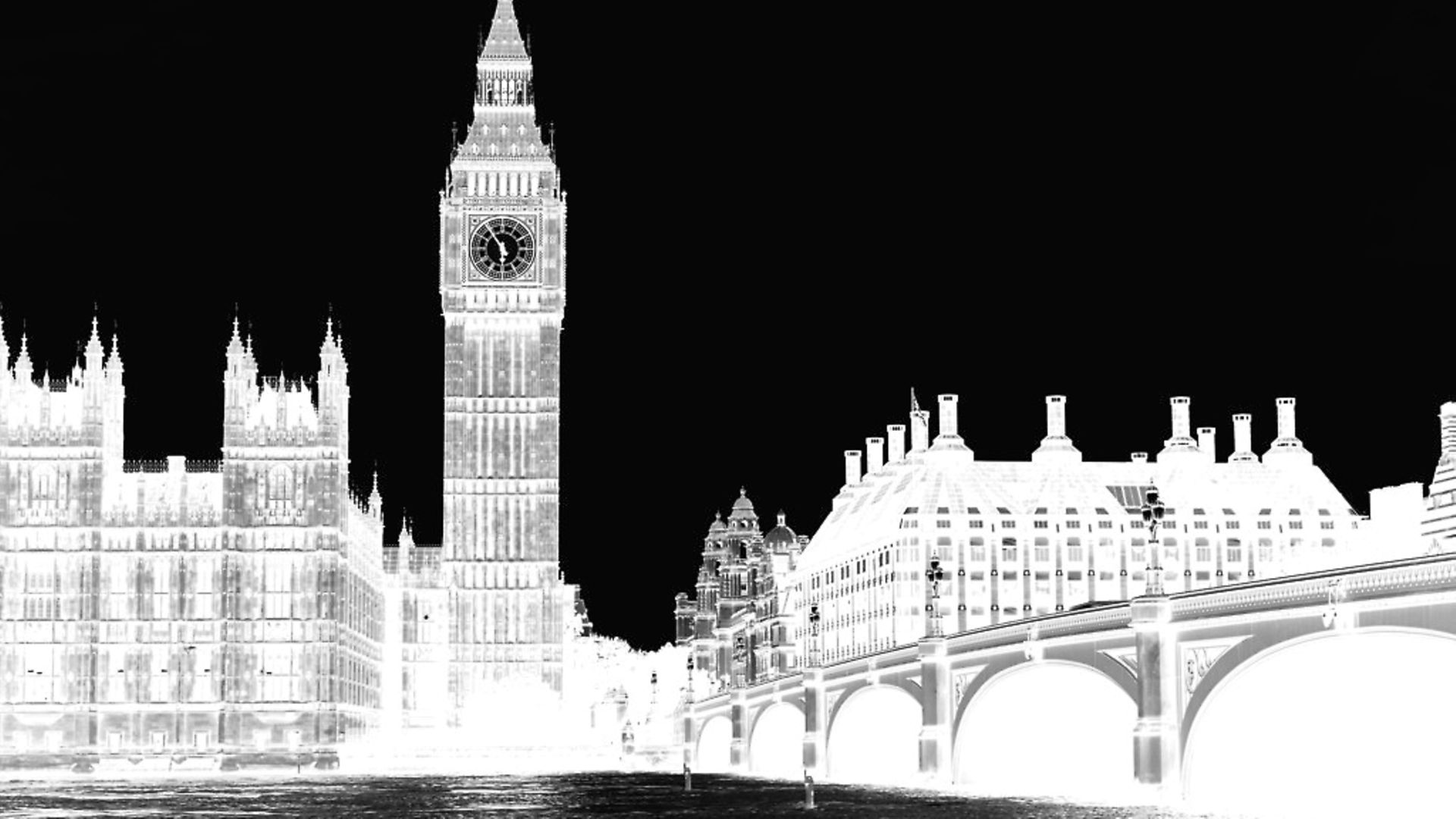
How an emboldened Parliament can halt the descent to Brexit chaos
The descent into Brexit chaos accelerates on a daily basis. Turn away from a news outlet for more than an hour or two and there is some new twist. From close to the Brexit department David Davis’ former adviser reveals that his old boss is trapped by red lines announced by Theresa May without consultation. Philip Hammond reminds us that trade deals can take decades to complete and therefore long transitional arrangements will be required.
In contrast Davis suggests that such deals will be a breeze. Michael Gove cites fishing laws that no longer exist. May’s ‘offer’ in relation to EU citizens living in the UK is dismissed by other leaders as inadequate. Meanwhile the Brexit department indicates a belated recognition that the UK cannot have its cake and eat it, the early comically-misjudged swagger turning to fearful doubt.
The clock ticks. The UK is meant to leave the EU by March 2019.
At the end of last month the House of Lords staged a debate on Brexit. The exchanges were alarming because of the contributors’ tonal restraint and forensic focus on a single policy implication. Some of the speakers were crossbenchers with no partisan axe to grind. In the short period I watched the debate deep concerns were expressed in relation to the management and regulation of data, the transport implications of new trade barriers with traffic jams of lorries heading back for miles and the inevitability that even a soft border between Northern Ireland and the rest of Ireland will involve random checks, a provocative new boundary.
As Andrew Adonis put it in a stunning speech ‘the notion that everything is going to be solved by technology – that we can set up border controls in Northern Ireland, Dover and Calais but they will be magically invisible and frictionless – that policy would last about as long as the Government’s social care policy when the frictionless and invisible border controls become queues of trucks on the M2 and M25 stretching to Watford’.
Peers focused on what will happen once the UK has left the EU. Even more disturbing is what is happening now. Virtually all political energy is being sucked up by Brexit.
At the beginning of last year David Cameron was rarely in the UK as he sought to complete his ‘renegotiation’ with the rest of the EU. Normally Cameron kept trim by running around St James’ Park each morning. During his renegotiation he put on weight as he spent sleepless nights in Berlin, Prague, Warsaw and the rest to secure his deal that was rejected in the referendum. Multiply by 500 the scale of May’s task as she seeks to secure the backing of individual governments, the European Parliament and of course the Westminster Parliament.
The Brexit department, still finding its feet in the Whitehall maze, lost two ministers after the election. The Trade department cannot agree new trade deals and lacks the expertise to do so. The Foreign Office seeks a role and is not sure it has one. The media focuses on little else but Brexit. Brexit is everywhere even though no one knows what form it will take.
Imagine if all the Brexit energy, resources and scrutiny were focused on addressing the crisis in the NHS and the housing emergency. Reflect fleetingly on what might happen if, instead of three bewildered Brexit departments, there was a new Housing department represented by a senior cabinet minister and a separate clearly defined mission to meet the health demands of a growing elderly population, with each twist and turn followed obsessively by the media. Instead urgent policy areas are forced to the periphery. Brexit and its volcanic demands are centre stage. Far from benefiting from Brexit the NHS suffers from a lack of focus now and risks suffering more if the UK leaves and becomes poorer.
The deepening chaos and the at best uncertain future begs a question. Will this newly elected House of Commons conclude that the madness must stop altogether? Forget about Soft and Hard. What about staying in? Is there a big political figure capable of rising above the fray to stop the rush toward’s the cliff’s edge?
At the moment MPs dissemble in different ways. I do not blame them. Leaders have to keep their parties as united as possible. MPs do not want to be seen disowning voters in an era of extreme mistrust. Nonetheless the various stated positions of the government and the opposition parties, and the stances within divided parties, is not sustainable for long. The government and the Labour leadership seek ‘access’ to the single market or sometimes ‘as much access as possible’. The terms are meaningless. What if what becomes ‘possible’ is so limited in its access that the UK is doomed to be poorer? Conversely those MPs rightly calling for continued full membership of the single market and the customs union might as well follow through the logic of their position and argue that the UK is better off staying in the EU.
Some senior parliamentarians agree that staying in the EU is the logical position of those calling for continued membership of its key institutions. Currently most of them are in the Lords rather than the Commons. They are not as intimidated by votes cast in a referendum.
A former Conservative cabinet minister in the Lords tells me that he has studied the new party on his side in the Commons and is convinced that if they could follow their own instincts there would be enough of them to halt Brexit. A Labour peer, on other matters close to his party’s leadership, has concluded that a Soft Brexit is as calamitous and impractical as a Hard one and that the only option is to stop Brexit. In the Commons the mood is less robust at the moment, with some MPs telling me there would be riots if the referendum was overturned and therefore even though they predict calamity they are still in a mood to facilitate the process.
Their mood does not have to last much longer. The election has transformed the context in which Brexit takes place. It was the previous House of Commons, not the new one, that voted by an overwhelming majority for the absurdly simplistic referendum. Arguably the pre-election House of Commons had a duty to respect the outcome of a referendum it had instigated.
This is a new House of Commons, a chamber that played no part in authorising the referendum and one that did not trigger Article 50. David Cameron, the Prime Minister who began the dark sequence in order to keep his party together, is not even in the House of Commons any longer and was last seen in a posh shed writing his memoir.
When she called the early election Theresa May explicitly sought a mandate for her version of Brexit. She lost her party’s overall majority. In February 1974 when the Prime Minister Edward Heath called an early election to win a mandate for his policies he also lost his majority. In the subsequent House of Commons Heath’s policies no longer applied. Similarly May has no authority to deliver Brexit.
Her impotence is not only a consequence of the election. Far from being an act of steely assertiveness the signing of Article 50 transferred power from the UK to the rest of the EU to determine the manner of Brexit. The move marked a significant decline in the power of the UK to decide its own fate. When May attended the EU summit of leaders in June she was put in her place not because she is a weakened Prime Minister as a result of the election, but as a consequence of triggering Article 50. She would have lost control of Brexit if she had won an overall majority of 200.
So how can Brexit be stopped? Currently May is doomed to be the least significant Prime Minister of modern times. Even if she delivers Brexit she will do so as the powerless creature of her party and not as an historic agent of change. But she could achieve greatness by declaring that she has concluded Brexit is bad for the UK. She would metamorphose from an impotent figure of mockery to a Churchillian stateswoman. This is highly unlikely but not impossible. May’s speech to the Police Federation conference in the summer of 2014 was one of the best delivered by a minister in recent years in its brave demand for the police to reform. She is capable of principled courage and she has nothing to lose.
There is around a 1% chance of May becoming Churchillian. The percentage chance of Jeremy Corbyn calling for Brexit to be stopped is around the same level.
That leaves MPs in a hung parliament to rise above the party fray and exercise their new muscularity. They can do so partly in a war of attrition. In the recent Queen’s Speech there were eight pieces of legislation that Brexit would require over the next two years, covering trade, customs arrangements, international sanctions, nuclear safety, agriculture, fisheries and immigration, as well as the so called ‘repeal bill’ which will transform existing EU rules into British law. There will be plenty of opportunities where MPs can combine to defeat the government over specific issues while insisting they are content for the UK to leave the EU if voters are not poorer. The Lords would be happy to follow their example. At some point, once they have got used to asserting their newly acquired might, they will get the chance to vote against the whole deal if the government can get one in the time left for the negotiation. They should take it.
When a Soft Brexit means paying for membership and having no influence and when a Hard Brexit means hurtling over the cliff’s edge, the whole shambles must be brought to a halt. This parliament is not obliged to follow the vague instruction of a referendum held before the election. On the contrary MPs and Lords have a patriotic duty to save Britain from itself.
Steve Richards is a political writer and broadcaster; his new book, The Rise of the Outsiders, is published by Atlantic this month. Follow him @steverichards14










